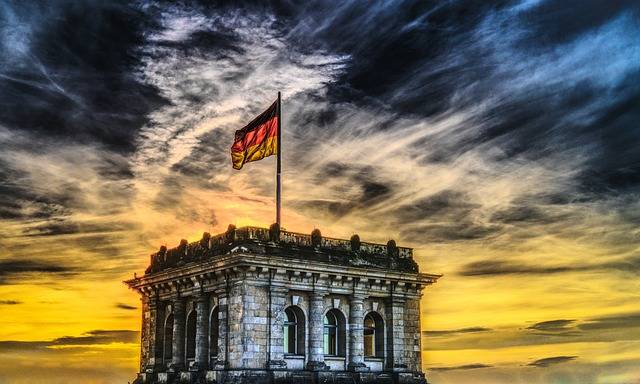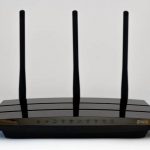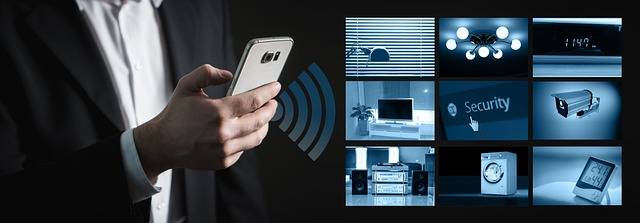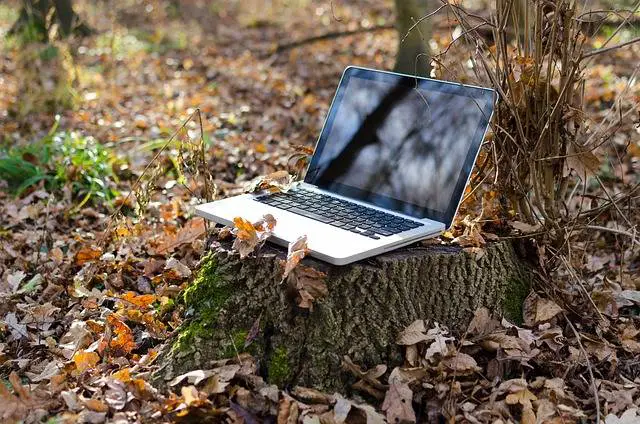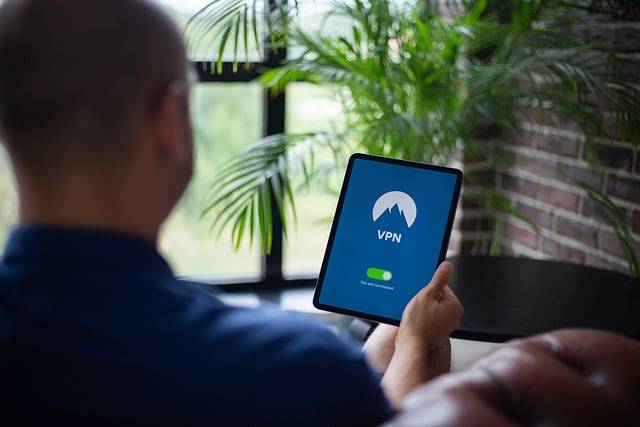Are you concerned that your online activity is being tracked by the government? Do you want to know if a VPN can protect you from government surveillance?
In this blog article, we will explore the truth about whether or not governments can track your VPN activity and how to best protect yourself from government tracking.
We’ll also look at the pros and cons of using a VPN to avoid government tracking, as well as what you need to know about keeping your online activity private with a VPN. Read on for more information!
Table of contents: Can VPN Be Tracked by Government
- Is Your VPN Truly Secure from Government Tracking?
- How to Protect Yourself from Government Surveillance with a VPN
- Uncovering the Truth: Can Governments Track Your VPN Activity?
- The Pros and Cons of Using a VPN to Avoid Government Tracking
- What You Need to Know About Keeping Your Online Activity Private with a VPN
In this digital age, the use of Virtual Private Networks (VPNs) is becoming increasingly popular. With a VPN, users can access content that may be blocked in their country or region and browse the internet anonymously. But with all these benefits comes one major question: Can governments track VPN usage?
The short answer is yes – but it’s not as simple as you might think. Governments have various methods for tracking online activity and while they are able to detect when someone is using a VPN, they cannot always determine who exactly is behind it.
When you connect to a website through your browser without using a VPN, your IP address will be visible to anyone monitoring traffic on that website. However, when you use a VPN service, your real IP address will be hidden from view since all data sent over the network passes through an encrypted tunnel first before reaching its destination server.
This means that even if someone were able to intercept your data packets they would only see gibberish instead of readable text or images, which makes it difficult for them to identify who was sending them in the first place without additional information such as logs kept by the provider or other external factors like location-based services used by websites visited while connected via said provider’s servers.
That being said, there are still ways for governments and other organizations with enough resources at their disposal to track down people using virtual private networks – though these methods require more effort than simply looking up an IP address associated with certain activities online.
For example, some providers keep detailed logs about user activity which could potentially reveal what sites were accessed during specific times, making it easier for authorities to pinpoint individuals based on their browsing habits.
Additionally, if law enforcement agencies have access to sophisticated tools like deep packet inspection then they can analyze encrypted traffic patterns coming from different sources, including those originating from within virtual private networks, in order to find out where each packet originated from initially.
Is Your VPN Truly Secure from Government Tracking?
When it comes to protecting your online privacy, a Virtual Private Network (VPN) is one of the best tools available. It encrypts your data and hides your IP address, making it difficult for anyone to track you or monitor what you’re doing online. But with government agencies around the world increasingly looking for ways to access user data, can VPNs really guarantee that they are secure from government tracking?
The short answer is yes – if you choose a reputable provider and use their service correctly. Most good quality VPN services will have strong encryption protocols in place, which make it virtually impossible for any third party – including governments – to decrypt and view user data. However, there are certain steps users should take when selecting a service in order to ensure maximum security against government tracking:
First of all, look out for providers who offer military-grade encryption standards such as AES 256-bit encryption or OpenVPN protocol; these provide the highest level of protection against potential snooping by governments or other entities.
Additionally, some providers also offer additional features such as ‘no logs’ policies which mean that even if someone were able to intercept your traffic they wouldn’t be able to find out anything about what sites you visited or activities carried out while connected via the VPN server.
Finally, check whether the provider has servers located outside countries where mass surveillance laws exist; this means that even if those countries do try and access user information, then at least they won’t be able to see any activity related specifically through those servers due their location being outside jurisdiction boundaries.
How to Protect Yourself from Government Surveillance with a VPN
Government surveillance is a growing concern for many people, especially in light of recent revelations about the extent of government spying. Fortunately, there are steps you can take to protect yourself from government surveillance and one of the best ways to do this is by using a Virtual Private Network (VPN).
A VPN works by encrypting your data as it travels between your device and the internet. This means that any third party trying to monitor or intercept your data will be unable to read it. In addition, a VPN also hides your IP address so that websites cannot track where you are located geographically.
Using a reputable VPN service provider is essential if you want maximum protection against government surveillance. Look for providers who offer strong encryption protocols such as OpenVPN or L2TP/IPsec, and make sure they have servers located in countries with strong privacy laws like Switzerland or Panama. It’s also important to choose one which has no-logging policies so that none of your activity can be traced back to you even if someone were able to access their server logs somehow.
Finally, make sure that whatever device(s) you use when connecting through the VPN have up-to-date security software installed on them, such as anti-virus programs and firewalls, which will help keep out malicious actors looking for vulnerabilities in order to gain access to devices connected through public networks like WiFI hotspots, etc.
By taking these precautions when using a VPN service provider not only will it help protect against potential government snooping, but it will also give peace of mind knowing that all online activities remain private and secure at all times!
Uncovering the Truth: Can Governments Track Your VPN Activity?
In recent years, the use of Virtual Private Networks (VPNs) has grown exponentially. With the rise in online privacy concerns and government surveillance, more people are turning to VPNs to protect their data from prying eyes. But can governments track your VPN activity?
The short answer is yes – but it’s not as simple as you might think. Governments have a variety of tools at their disposal that allow them to monitor internet traffic and uncover the truth about what people are doing online. This includes techniques such as deep packet inspection (DPI), which allows authorities to analyze data packets sent over networks for suspicious content or activities.
However, while governments may be able to track your VPN activity if they really want to, most users don’t need to worry about this happening on a regular basis due to encryption protocols used by most reputable providers today. Encryption scrambles information so that only those with access keys can read it; this makes it much harder for anyone snooping around on public networks or even government agencies trying to spy on citizens’ activities online without permission or cause for suspicion.
Ultimately, using a reliable VPN service is still one of the best ways you can protect yourself against unwanted surveillance and maintain your privacy when browsing online – just make sure you do some research before choosing one!
The Pros and Cons of Using a VPN to Avoid Government Tracking
Using a VPN to avoid government tracking can be a great way to protect your online privacy. A Virtual Private Network (VPN) is an encrypted connection that allows you to securely access the internet without having your data monitored or tracked by third parties, including governments.
The pros of using a VPN are numerous; it helps keep your identity and location hidden from prying eyes, prevents ISPs from throttling or blocking certain websites and services, and even protects you against malicious software downloads.
It also ensures that all of your data is encrypted so that no one can intercept it while in transit over the internet. Additionally, many VPNs offer additional features such as IP cloaking which further enhances security by masking your real IP address with another one provided by the service provider.
However there are some cons associated with using a VPN too; they tend to slow down browsing speeds due to encryption overhead, they may not always be reliable depending on where you’re located geographically speaking (some countries have blocked access), and if used incorrectly could potentially expose users’ identities if their true IP address was discovered during use of the service.
Furthermore, some governments have taken steps towards cracking down on people who use them for illegal activities such as downloading copyrighted material or accessing restricted content in other countries – so make sure you know what laws apply before connecting!
Overall though, using a good quality paid-for virtual private network is still one of the best ways available today for avoiding government tracking while surfing online – just make sure you do plenty of research first before committing yourself!
What You Need to Know About Keeping Your Online Activity Private with a VPN
As the internet becomes an increasingly integral part of our lives, it is important to understand how to keep your online activity private. A Virtual Private Network (VPN) can be a great tool for protecting your privacy and keeping your data secure.
With a VPN, you can access websites without revealing your IP address or location, encrypting all of the data that passes through the network. This means that even if someone were able to track down where you are connecting from, they would not be able to see what sites you are visiting or any other information about what you’re doing online.
Using a VPN also helps protect against malicious actors who may try to intercept and steal sensitive information such as passwords or credit card numbers while using public Wi-Fi networks. By routing traffic through an encrypted tunnel between two points on the Internet – usually from one country’s server to another – makes it much harder for anyone trying to spy on users’ activities by tracking their IP addresses or locations.
When selecting a VPN provider, make sure they offer strong encryption protocols like OpenVPN and AES 256-bit encryption so that all of your communications remain secure and confidential at all times. Additionally, look out for providers with no logs policy, which ensures none of the user activity is tracked by them either – this way governments won’t have access either!
Finally, check whether there are any additional features such as kill switch protection which will cut off connection if something goes wrong with the service itself – this will help ensure maximum security when browsing online!

